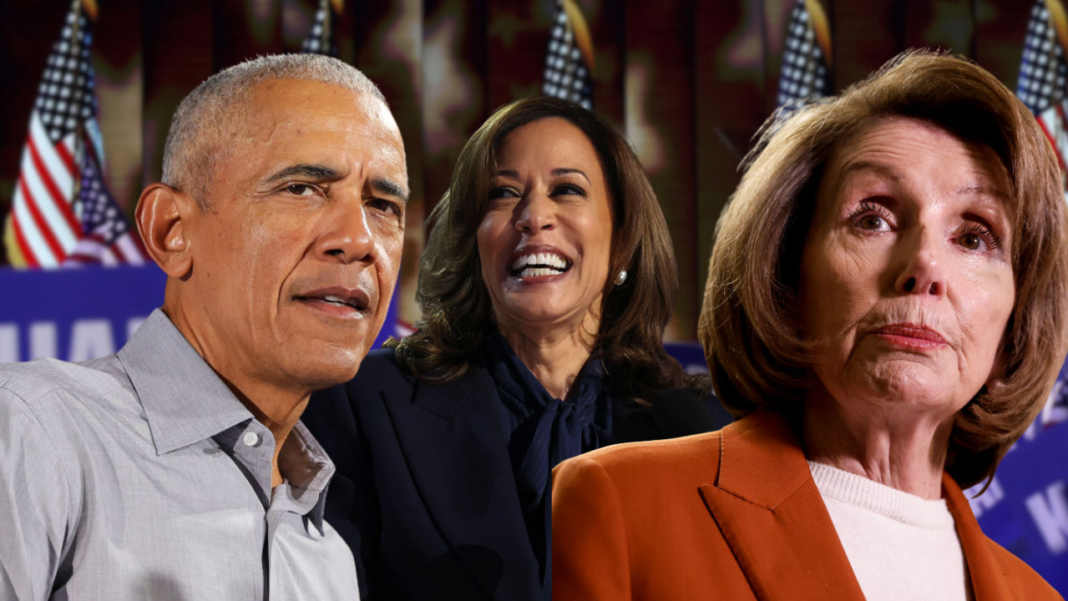Tensions in Democratic Leadership: A Look at Pelosi’s Endorsement of Harris
In the rapidly changing landscape of American politics, particularly within the Democratic Party, newly released insights from Jonathan Karl’s book Retribution reveal an intriguing rift involving two of the party’s most prominent figures: former President Barack Obama and former Speaker of the House Nancy Pelosi. According to this book, Obama was reportedly displeased with Pelosi’s swift endorsement of Kamala Harris for the 2024 Democratic presidential nomination shortly after President Joe Biden’s unexpected decision to withdraw from the race.
On July 21, 2024, Biden shocked the political landscape by announcing his withdrawal from the re-election race and promptly endorsing Harris as his successor. Merely a day later, Pelosi declared her “enthusiastic support” for Harris, praising her as “brilliantly astute” and expressing confidence in her ability to secure a victory in the upcoming election.
A Quick Turn of Events
Pelosi’s rapid endorsement raised eyebrows, especially given that Biden’s announcement took many by surprise. According to Karl’s reporting, Obama was caught off guard. The two Democrats had been in regular communication during Biden’s deliberations, and they had previously agreed that Harris should not simply be handed the nomination without a robust primary process. Yet, Pelosi’s statement seemed to indicate a solid endorsement that left little room for alternative candidates, prompting a private response from Obama that was reportedly filled with disbelief.
The book shares an anecdote that conveys Obama’s initial reaction: “What the f–k did you just do?” This reflects a sentiment of frustration rather than outright anger, although sources close to Obama have suggested that the discussion was lighthearted and devoid of serious tension.
Perspectives and Reactions
Despite assertions from Obama’s camp that he was not genuinely upset, Karl notes that Pelosi perceived the reaction differently. She believed Obama was “genuinely” irritated and had misjudged the timing of her endorsement. This disconnect highlights the complexities within Democratic leadership, where alliances and strategic decisions can quickly become contentious.
A senior adviser close to Biden pointed out that Obama’s hesitation towards Pelosi’s endorsement stemmed from a larger concern regarding Harris’s electability. The adviser alluded to the symbolic weight of Obama’s legacy, suggesting that the former president’s popularity as the first Black president overshadowed the potential for Harris to secure a similar following.
The Complexity of Endorsements
Interestingly, despite her pivotal role in American politics, Pelosi had her reservations about Harris back in 2020 when Biden selected her as his vice-presidential running mate. However, faced with the lack of competing candidates following Biden’s withdrawal, Pelosi felt compelled to support Harris’s candidacy. As Karl observed, “She had no choice… The only thing Pelosi could do was try to help her win the election.”
Subsequently, both Barack and Michelle Obama eventually endorsed Harris in a campaign video on July 26, less than a week after Biden’s announcement. This shift signified a reconsolidation of party unity, albeit under pressure and amidst internal dissent.
Reflecting on Primaries
The fast-paced nature of this endorsement process has sparked discussions about the viability of Harris’s candidacy without a traditional primary battle. In a recent talk in London with author Chimamanda Adichie, Harris addressed criticisms regarding the absence of a competitive primary process, highlighting the short timeframe between Biden’s withdrawal and her endorsement. “You had 107 days. Did any of the people who wanted a primary actually say how this would have happened?” she responded, underscoring the urgency of the moment.
This back-and-forth illustrates the ongoing debate within the Democratic Party about how leadership transitions should be handled—whether through time-tested primary processes or more expedient endorsements in response to unforeseen political shifts.
The Bigger Picture
As the drama surrounding Pelosi’s endorsement unfolds, it emphasizes not only personal interactions among party leaders but also the broader challenges facing the Democratic Party. In an era where rapid changes can alter the political landscape overnight, navigating relationships and endorsements becomes increasingly complex. The interplay of personal opinions, legacy concerns, and strategic decisions continues to shape the future trajectory of America’s political environment, and the repercussions of these disputes may echo for years to come.



